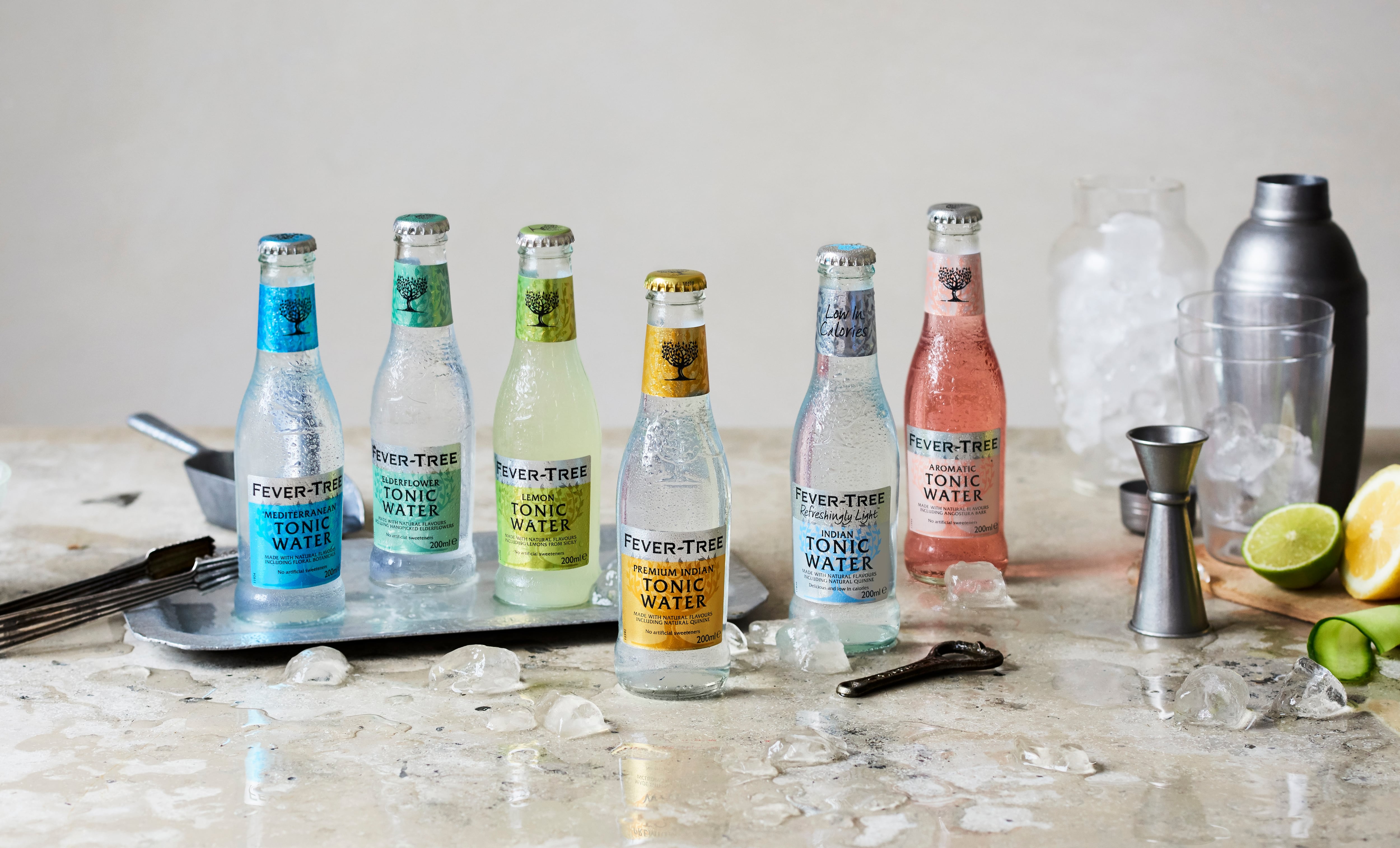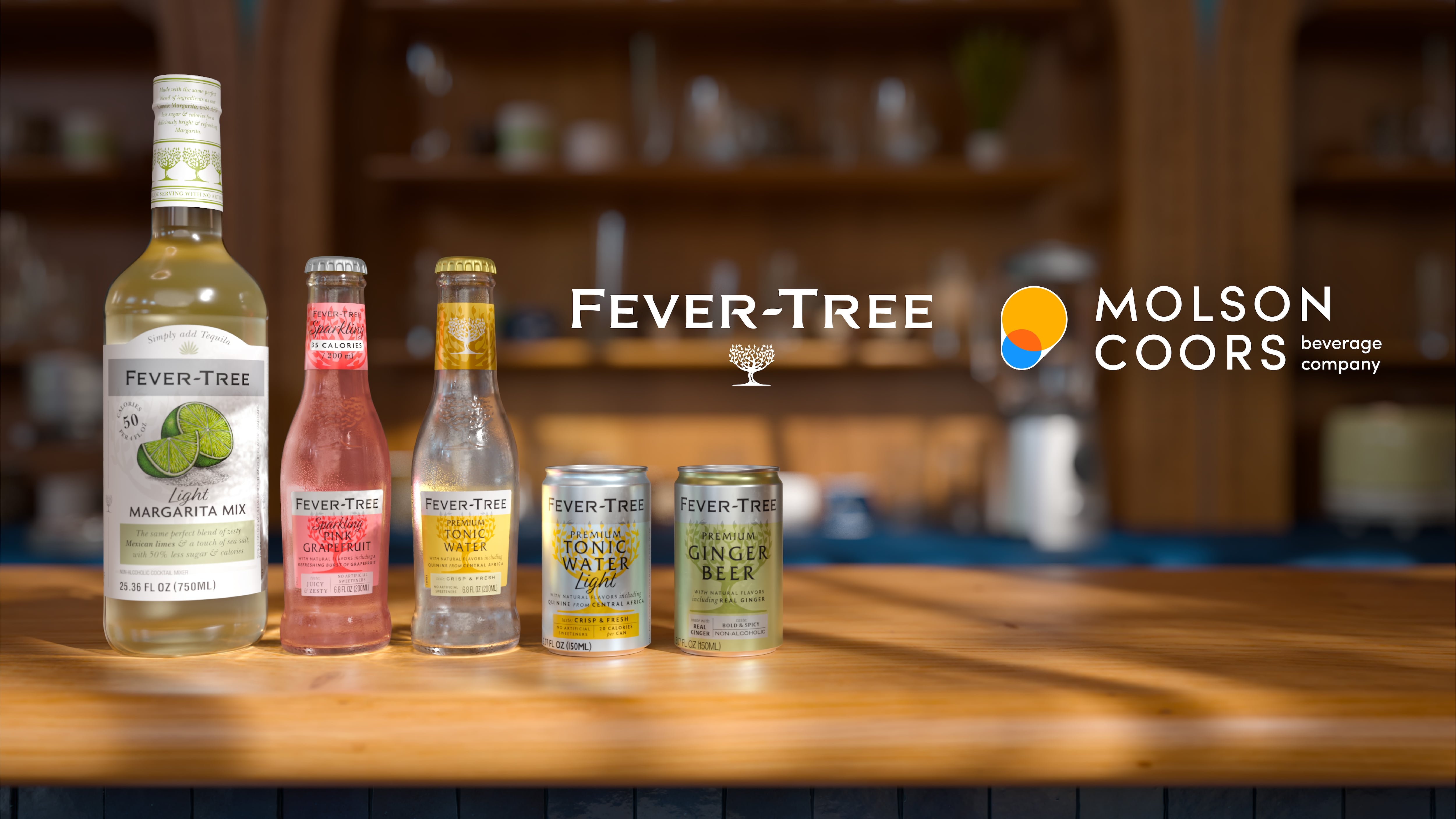UK tonic and mixer brand Fever-Tree and US beer giant Molson Coors have announced a strategic partnership in the US. Molson Coors will gain exclusive commercialization rights for Fever-Tree’s line-up of tonics, ginger beers and cocktail mixers in the US.
That will see it take on sales distribution and marketing, while Fever-Tree retains control of the brand identity, vision and innovation of the brand.
As part of the deal, Molson Coors takes an 8.5% stake in Fever-Tree for £71m ($88m), a deal which sent Fever-Tree shares soaring after it was announced on Thursday (Jan 30).
Molson Coors becomes the second largest shareholder in the company.
Good gin, good tonic
Fever-Tree was founded by Charles Rolls and Tim Warrillow in 2004 with the simple premise of capitalizing on the gin boom by creating an equally premium mixer to accompany the spirit.
The business has boomed over the past decade with revenues reaching £363m in 2024.
In its native UK, Fever-Tree has been able to take advantages of the opportunities with ease. But the US is now Fever-Tree’s biggest market (revenues grew 9% to reach £128m in 2024, compared to £110m in the UK).
And the opportunity is bigger: the US is the largest and most developed premium drink market (the company estimates the premium spirits market is 11.5x the size of the UK’s).
“The long term trends [in the US] are ideally suited to the Fever-Tree brand,” said Tim Warrillow, co-founder and CEO.
“Namely, consumers’ desire to drink less but better. Preferences for longer, lighter drinks. As well as more mindful drinking, where consumers want to socialize with lower or non-alcoholic drinks.
“We believe we are uniquely placed to meet these new and evolving expectations.”
And while the brand has performed well in the US to date, there’s still opportunity.
“Since first entering the market in 2008 fever tree has been on a highly successful journey in the US,” continued Warrillow. “And as a result, it has not only become our largest revenue generating market, but still also has enormous runway of growth ahead.
“We have revolutionized the mixer category, driving a premium brand to market leading position with a 24% CAGR growth since 2018. We have built and positioned the brand for significant future growth.”
For Fever-Tree, the deal has two key attractions. First of all, there’s the scale and platform of Molson Coors that can turbo-charge the brand in the US.
But Molson Coors also has the capabilities to drive Fever-Tree into new channels, occasions and route-to-market opportunities.
The strategic benefits of the deal include:
· Strategic Alignment: Fever-Tree and Molson Coors have a 'shared vision, belief and commitment' to driving the brand’s expanding opportunity across both alcohol and non-alcohol occasions.
· Scale and Platform: The partners will be able to leverage Molson Coors' national network of US distributors and customers across the On- and Off-Trade as well as the scale and strength of their dedicated sales and commercial teams, to maximise Fever-Tree’s momentum, brand strength and ability to grow its total addressable market.
· Step Change in Investment: A 'substantial incremental marketing fund' will be deployed across the initial period of the partnership providing the firepower to drive further brand and category awareness.
· Local US production: Partnership will capitalise on Molson Coors' broad supply chain network, procurement strength and expertise to drive operational efficiencies, as well as managing the onshoring of US production.
Fever-Tree product has been mainly imported into the US: meaning the company has to juggle long shipping times, long lead times, and exposure to transatlantic freight costs.
The deal, however, ‘will enable Fever-Tree to capitalize on Molson Coors supply chain and procurement strength, and expertise to drive operational efficiencies, as well as manage the onshoring of US production’.
“The deal will allow Fever-Tree to partner with an expert in supply chain and drive higher profitability whilst also increasing A&P,” notes Jefferies analyst Ed Mundy. Stronger distribution “should allow US sales to increase 80% by 2028”, he predicts.
Then there’s the opportunity to use Molson Coors’ might and muscle to get product into stores: thanks to a network of more than 500,000 accounts and around 30,000 deliveries every day. That’s alongside a dedicated national sales force, strong category management, and deep sales insights and data.
The core opportunity, says Warrillow, is to grow the tonics, sparkling waters and gingers in the grocery, liquor and on-trade markets. But there’s also future opportunity to build that up in convenience and mass merchandise channels as well.
And Fever-Tree is enthused by Molson Coors’ efforts over the last few years to move beyond beer while also maintaining its core beer portfolio, given it the necessary experience to deal with a premium tonic brand (Fever-Tree sits at the intersection of beer and non-alc and is often available in stores where beer is sold).
Molson Coors has been expanding its portfolio beyond its core range of beer (such as Coors Light, Miller Lite and Blue Moon) with brands in spirits and non-alcoholic beverages: with brands such as energy drink ZOA and Aussie non-alcoholic RTD cocktail brand Naked Life.
Fever-Tree's global expansion
Stronghold markets (including the UK, Belgium, Denmark): high market share in carbonated mixers, with significant adjacent opportunities in cocktail mixers and adult soft drinks
Next Wave markets (including the US, Italy, Australia): Fever-Tree is driving growth of premium mixers using a first mover advantage
Europe: premium spirits market is 1.5x the size of the UK and continues to premiumise



